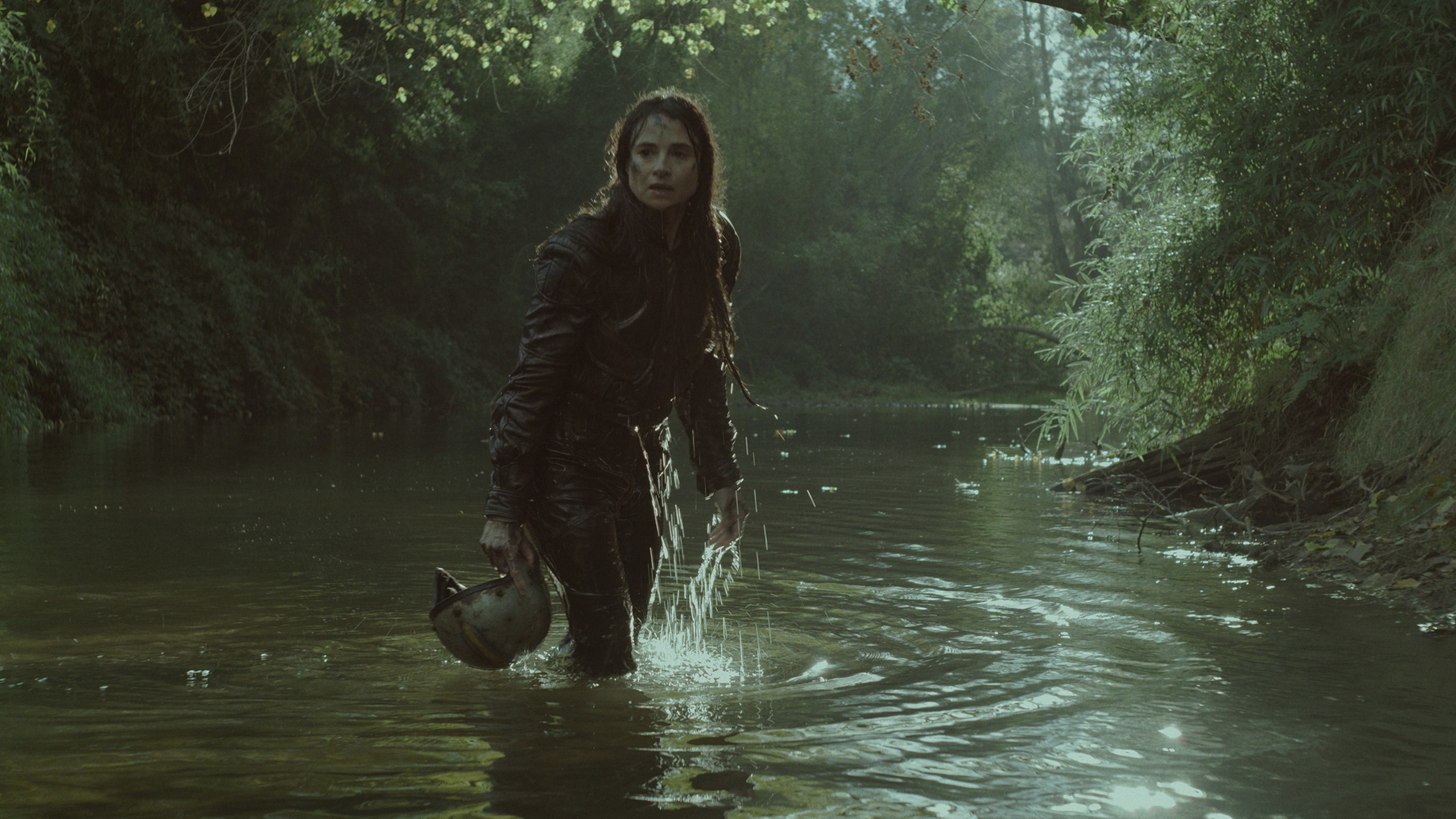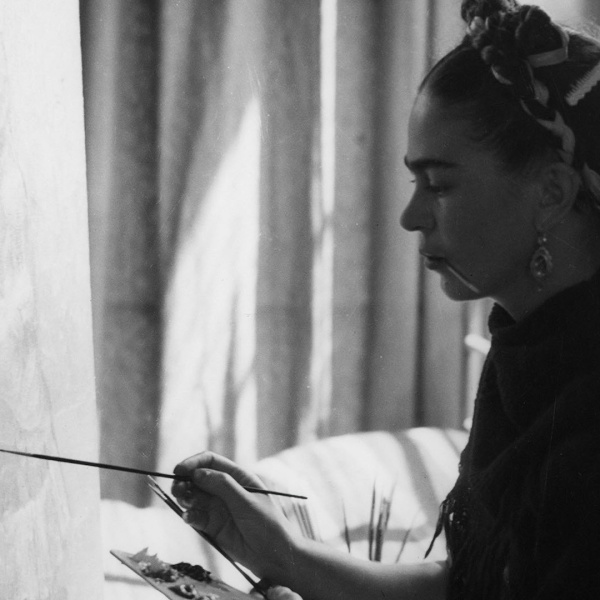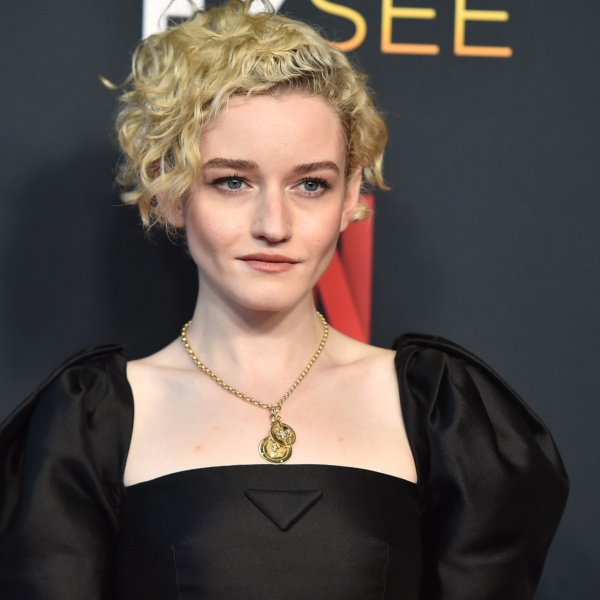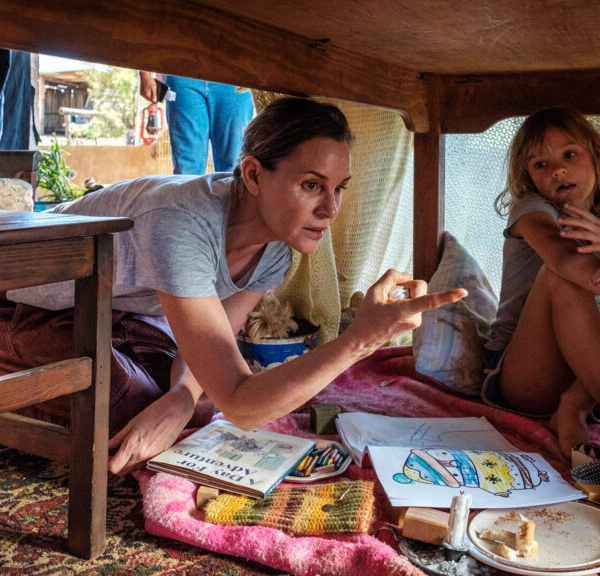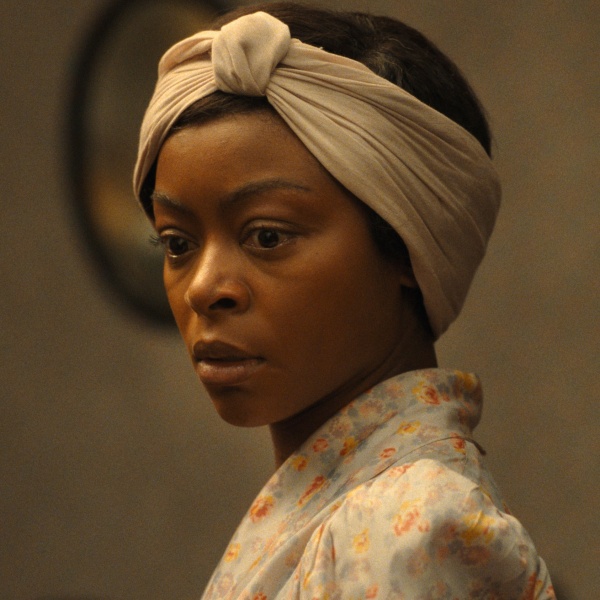Editor’s note: This review was originally published at the 2022 Sundance Film Festival. Kino Lorber releases the film in theaters on Friday, May 19.
“The Cow Who Sang a Song into the Future” uses magical realism to blend the story of a family deeply scarred by a suicide decades ago, and a fable of Mother Nature crying out for help. Thankfully, Francisca Alegría’s feature debut manages to be hauntingly moving and hopeful instead of angry and pessimistic, like Adam McKay’s recent doomsday satire “Don’t Look Up.”
The fish are dying from pollution, the bees are disappearing, and the milking cows are not far behind, not unlike the beginning of Douglas Adam’s “Hitchhiker’s Guide to the Galaxy.” And like the 2005 adaptation of the book, the lamentations of the animals is presented in song form, with the fish and cows singing woes of death and despair, begging for their suffering to serve some larger purpose. As the fish start dying in a river in the south of Chile, a woman (Mía Maestro) emerges after being dead for decades. Providing many questions and very few answers, Alegría and co-writers Fernanda Urrejole and Manuela Infante make a point to show that life can emerge from death, imploring the audience to stop fixating on the damages done in the past and focus on saving the present and future.
Maestro’s Magdalena may be elusively mute for the vast majority of the film, but she doesn’t need words to cause strong reactions wherever she goes. Her mere presence causes phones to come to life, and when her widowed husband sees her on the street, the surprise gives him a heart attack. This causes his daughter Cecilia (Leonor Varela) to return home to the family’s dairy farm with her two children. Inside the dairy farm, the specter of Magdalena’s suicide looms large, with old scars being brought to the surface for Cecilia and her brother Bernardo (Marcial Tagle), who took over the family business from their neglectful father.
“The Cow Who Sang a Song into the Future” plays with audiences expectations, using its visual language to tease the story of a vengeful spirit coming to unleash horrors on those who destroyed Mother Earth. But Alegría is not interested in horror or in shocking the audience to action. Instead, the film becomes a folkloric tale that uses magical realism as a way to connect the intimate story of a family suffering from generational trauma with a timely environmentalist fable of humanity ruining the environment and giving up while it’s still not too late. This is not unlike the way Hayao Miyazaki mixes the micro and the macro to tell personal stories that intersect with larger-than-life tales of humanity’s relationship with nature.
We see this in the way the trauma of losing her mother affects Cecilia’s present, from her lack of compassion towards the environment and the cows being separated from their calves at the dairy farm, to her lack of understanding and compassion towards her oldest child, who she calls Tomás, and actually identifies as a woman. Non-binary actor Enzo Ferrada makes a big impression in their first film role as Tomás, infusing the character with equal parts joy and melancholy. While Cecilia and her brother would rather ignore Magdalena than acknowledge her return, it is fitting that the one to forge the biggest connection with her is Tomás, who shares a feeling of not belonging within the confines of societal expectations. Maestro may not utter more than a handful of words as Magdalena, yet she expresses her character’s thoughts and emotions in a way that seems effortless, with silent looks between her and Tomás doing more to heal the broken family than words ever could.
Though its visual aesthetic is reminiscent of Miyazaki, the pacing and narrative approach of “The Cow Who Sang a Song into the Future” also shows hints of Apichatpong Weerasethakul’s meditative style. The film wants us to spend enough time with the characters in the quieter moments, but the problem is that the film often loses itself in the weeds of its own story. Maybe it’s Alegría’s transition from making shorts to a full feature, but the cow could have sung a shorter song this time. That’s not to say the titular cow should have less screen time, on the contrary. Despite not being the focus of the film, the film has some of the best animal actors for a movie in a long time, and between Inti Briones’s framing and Andrea Chignoli and Carlos Ruiz-Tagle’s editing, you will believe a cow can sing.
Though “The Cow Who Sang a Song into the Future” starts with shots of dead fish, it ends on a more reassuring note: that if we stop agonizing over the past and focus on what is happening right now, there is life to be found, and it is not too late to reduce the damage. If not for us, for those who come after us.
Score: B+
“The Cow Who Sang a Song Into the Future” premiered at the 2022 Sundance Film Festival.
